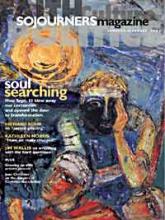Tennessee, Hawaii, and Utah are the only states that have no legalized gambling or lotteries. That could change when a constitutional amendment to allow a lottery comes up for a referendum vote in Tennessee in November 2002. An interdenominational coalition of Tennessee churches considers gambling "a menace to society, deadly to the best interests of moral, social, economic, and spiritual life, and destructive of good government."
Timothy Kelly, former executive director of the National Gambling Impact Study Commission, called for a national moratorium on gambling expansion. Kelly had no strong views about gambling one way or the other, he said, when he took the job with the commission. "But as I heard stories about gambling’s harmful effects on individuals, their families, and their communities, I could not escape this conclusion: Gambling destroys too many lives." The top 5 percent of lottery players purchase 54 percent of tickets, spending on average $3,750 annually, according to Kelly. Those making more than $100,000 spend an average of $289 annually. Those making less than $10,000 spend an average of $597 each year.
Read the Full Article
